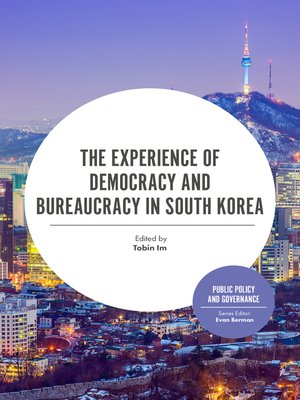Public Policy and Governance, Volume
ebook ∣ The Experience of Democracy and Bureaucracy in South Korea · Public Policy and Governance
By Tobin Im

Sign up to save your library
With an OverDrive account, you can save your favorite libraries for at-a-glance information about availability. Find out more about OverDrive accounts.
Find this title in Libby, the library reading app by OverDrive.



Search for a digital library with this title
Title found at these libraries:
| Library Name | Distance |
|---|---|
| Loading... |
South Korea is renowned as one of the success stories of fast economic development. The Korean developmental state was a highly efficient, meritocratic, and fully monopolized coercive force. These resources were skilfully leveraged to shape the direction of private sector actors towards strategic initiatives. However, these very same resources could have resulted in the bureaucracy retaining its power indefinitely. Instead, step-by-step, the resources of the bureaucracy, which serviced the authoritarian leadership in the developmental period, were exercised towards democratization. What were the conditions that made this transformation possible?
The Experience of Democracy and Bureaucracy in South Korea addresses this question, filling the existing gap in the academic literature and presenting political implications. It explores the ways in which bureaucracy may not only be compatible with democracy but, more ambitiously, the conditions under which it can enhance it. The chapters examine the unique systems and institutions of the Korean bureaucracy including the National Election Commission, the police force, local government, the ceiling recruitment strategy, and procurement policy.
This timely collection will be of interest to researchers, graduate and undergraduate students in public administration and policy. It will also be a useful reference for bureaucrats in developing countries who seek to design policy for bureaucracy in concurrence with democratization.
The Experience of Democracy and Bureaucracy in South Korea addresses this question, filling the existing gap in the academic literature and presenting political implications. It explores the ways in which bureaucracy may not only be compatible with democracy but, more ambitiously, the conditions under which it can enhance it. The chapters examine the unique systems and institutions of the Korean bureaucracy including the National Election Commission, the police force, local government, the ceiling recruitment strategy, and procurement policy.
This timely collection will be of interest to researchers, graduate and undergraduate students in public administration and policy. It will also be a useful reference for bureaucrats in developing countries who seek to design policy for bureaucracy in concurrence with democratization.







